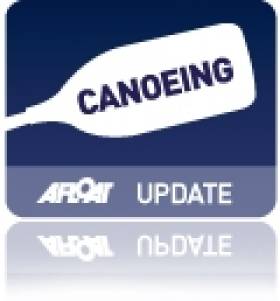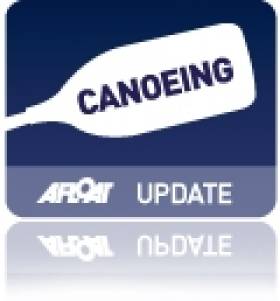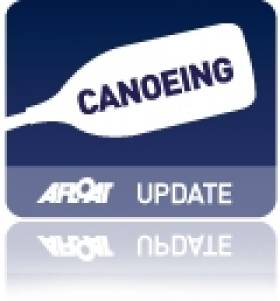Displaying items by tag: Watkins,
# CANOEING: Ireland had a fifth and a seventh place in A Finals at the Canoe Sprint World Cup in Duisburg this morning. Newly-qualified Olympian Andrzej Jezierski did not have a great start in the C1 200 metre race won by Spain’s Alfonso Benavides of Spain. Jezierski finished seventh. Barry Watkins battled well in the K1 500 metres and finished fifth in a race won convincingly by Anders Gustafsson of Sweden.
Canoe Sprint World Cup Two, Duisburg (Irish Interest)
Men
K2 200 – C Final (Places 19-27): 5 V Pierce, S Marchetti 34.156; 6 M Majchrzak, P Egan 34.201
C1 200m – A Final: 1 Spain (A Benavides) 40.685, 2 Germany (S Kiraj) 40.760, 3 Brazil (N Santos) 41.203; 7 Ireland (A Jezierski) 41.558
K1 500m – A Final: 1 Sweden (A Gustafsson) 1:41.063, 2 Germany (T Liebscher) 1:41.431, 3 Tunisia (MA Mrabet) 1:42.413; 4 Canada (B Reardon) 1:42.679, 5 Ireland (B Watkins) 1:43.526.
Watkins Impresses at Canoe Sprint World Cup
# CANOEING: Barry Watkins had an excellent first day at the Canoe Sprint World Cup in Duisburg in Germany. He qualified for the A Final of the K1 500 metres, winning his heat and placing third in the semi-final. He also reached the B Final in the K1 1,000 metres. Jenny Egan made it to the semi-finals of the K1 500 metres.
Canoe Sprint World Cup Two, Dusiburg (Selected Results; Irish interest)
Men
K1 1,000 Semi-Final: 5 B Watkins 3:39.586
K1 500 – Heats Three: 1 Watkins 1:45.552. Semi-Final Three – 3 Watkins 1:42.705
Women
K1 500 Semi-Final: 8 J Egan 2:06.936
#CANOEING: Ireland’s Barry Watkins reached two semi-finals at the ICF Canoe Sprint World Cup in Poznan in Poland today. He came closest to reaching the A Final in the K1 500 metres - he finished fourth in the semi-final, having won his heat. In the K1 1,000 metres he was second in his heat and fifth in the semi-final.
Jenny Egan reached the semi-final of the K1 500 metres, where she finished sixth.
Canoe Sprint World Cup, Poznan, Poland (Irish interest)
Men
K1 1,000m – Heat Five (1-6 to semi-final): 2 Ireland (B Watkins) 3:44.458. Semi-Final Two (1-2 and 3rd best time to A Final): 5 Watkins 3:58.572
K1 500 Heat Five (1-7 and one best time to Semi-Final): 1 Watkins 1:49.747. Semi-Final (1-2 and next best time to A Final): Watkins 1:49.618
Women
K1 500 – Heat One (1-6 to semi-final): 5 Ireland (J Egan) 2:07.163. Semi-Final One (1-2 and 3rd best time to A Final) 6 Egan 2:09.263.


























































